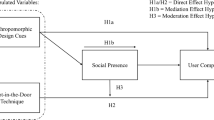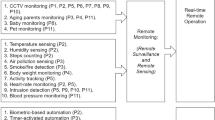Abstract
With the recent increase in the interest of individuals in health, lifecare, and disease, hospital medical services have been shifting from a treatment focus to prevention and health management. The medical industry is creating additional services for health- and life-promotion programs. This change represents a medical-service paradigm shift due to the prolonged life expectancy, aging, lifestyle changes, and income increases, and consequently, the concept of the smart health service has emerged as a major issue. Due to smart health, the existing health-promotion medical services that typically have been operated by large hospitals have been developing into remote medical-treatment services where personal health records are used in small hospitals; moreover, a further expansion has been occurring in the direction of u-Healthcare in which health conditions are continuously monitored in the everyday lives of the users. However, as the amount of data is increasing and the medical-data complexity is intensifying, the limitations of the previous approaches are increasingly problematic; furthermore, since even the same disease can show different symptoms depending on the personal health conditions, lifestyle, and genome information, universal healthcare is not effective for some patients, and it can even generate severe side effects. Thus, research on the AI-based healthcare that is in the form of mining-based smart health, which is a convergence technology of the 4IR, is actively being carried out. Particularly, the introduction of various smart medical equipment for which healthcare big data and a running machine have been combined and the expansion of the distribution of smartphone wearable devices have led to innovations such as personalized diagnostic and treatment services and chronic-disease management and prevention services. In addition, various already launched applications allow users to check their own health conditions and receive the corresponding feedback in real time. Based on these innovations, the preparation of a way to determine a user’s current health conditions, and to respond properly through contextual feedback in the case of unsound health conditions, is underway. However, since the previously made healthcare-related applications need to be linked to a wearable device, and they provide medical feedback to users based solely on specific biometric data, inaccurate information can be provided. In addition, the user interfaces of some healthcare applications are very complicated, causing user inconvenience regarding the attainment of desired information. Therefore, we propose a chatbot-based healthcare service with a knowledge base for cloud computing. The proposed method is a mobile health service in the form of a chatbot for the provision of fast treatment in response to accidents that may occur in everyday life, and also in response to changes of the conditions of patients with chronic diseases. A chatbot is an intelligent conversation platform that interacts with users via a chatting interface, and since its use can be facilitated by linkages with the major social network service messengers, general users can easily access and receive various health services. The proposed framework enables a smooth human–robot interaction that supports the efficient implementation of the chatbot healthcare service. The design of the framework comprises the following four levels: data level, information level, knowledge level, and service level.











Similar content being viewed by others
Notes
DeepMind Health, https://deepmind.com/applied/deepmind-health/.
University of North Carolina (UNC) Health Care, http://www.unc.edu/health/.
HealthTap, https://www.healthtap.com/.
OSCAR, https://www.hioscar.com/ny/.
Molly Chatbot Service, http://www.sensely.com/.
References
Chung, K., Park, R.C.: PHR open platform based smart health service using distributed object group framework. Clust. Comput. 19(1), 505–517 (2016)
Chung, K., Kim, J.C., Park, R.C.: Knowledge-based health service considering user convenience using hybrid Wi-Fi P2P. Inf. Technol. Manag. 17(1), 67–80 (2016)
Jung, H., Yoo, H., Chung, K.: Associative context mining for ontology-driven hidden knowledge discovery. Clust. Comput. 19(4), 2261–2271 (2016)
Yoo, H., Chung, K.: PHR based diabetes index service model using life behavior analysis. Wirel. Pers. Commun. 93(1), 161–174 (2017)
Chung, K., Park, R.C.: Cloud based U-healthcare network with QoS guarantee for mobile health service. Clust. Comput. (2017). https://doi.org/10.1007/s10586-017-1120-0
Park, R.C., Jung, H., Shin, D.K., Kim, G.J., Yoon, K.H.: M2 M-based smart health service for human UI/UX. Clust. Comput. 18(1), 221–232 (2015)
Park, R.C., Jung, H., Jo, S.M.: ABS scheduling technique for interference mitigation of M2 M based medical WBAN service. Wirel. Pers. Commun. 79(4), 2685–2700 (2014)
Kang, S.K., Chung, K.Y., Ryu, J.K., Rim, K.W., Lee, J.H.: Bio-interactive healthcare service system using lifelog based context computing. Wirel. Pers. Commun. 73(2), 341–351 (2013)
Kim, J.C., Chung, K.: Emerging risk forecast system using associative index mining analysis. Clust. Comput. 20(1), 547–558 (2017)
Jung, H., Chung, K.: PHR based life health index mobile service using decision support model. Wirel. Pers. Commun. 86(1), 315–332 (2016)
Jung, H., Chung, K.: Knowledge-based dietary nutrition recommendation for obese management. Inf. Technol. Manag. 17(1), 29–42 (2016)
Kim, J.C., Yoo, H., Kang, M.A., Ghose, S., Chung, K.: Big lifelog-based management using similarity for health platform. In: Proceedings of the 7th International Conference on Convergence Technology, pp. 627–628 (2017)
Sheth, A., Jaimini, U., Thiruarayn, K., Banerjee, T.: Augmented personalized health: how smart data with IoTs and AI is about to change healthcare. In: Proceedings of the 2017 IEEE International Forum on Research and Technologies for Society and Industry (RTSI) (2017)
Schaeffer, D.M., Olson, P.C.: Information and communications technology in Africa: enabling big data, to enable development. J. Comput. Sci. Colleges 33(3), 71 (2018)
Kar, D.M., Lazring, I., Ray, I.: POSTER: PriReMat: a distributed tool for privacy preserving record linking in healthcare. In: Proceedings of the ACM SIGSAC Conference on Computer and Communications Security, pp. 207–2509 (2017)
Kim, J.C., Chung, K.: Exploring design opportunities for a context-adaptive medical checklist through technology probe approach. In: Proceedings of the 2017 Conference on Designing Interactive Systems, pp. 57–68 (2017)
Kim, J.C., Chung, K.: Depression index service using knowledge based crowdsourcing in smart health. Wirel. Pers. Commun. 93(1), 255–268 (2017)
Fischer, M., Lam, M.: From books to bots: using medical literature to create a chat bot. In: Proceedings of the Workshop on IoT-enabled Healthcare and Wellness Technologies and Systems, pp. 23–28 (2016)
Oh, K.J., Lee, D.K., Ko, B.S., Choi, H.J.: A chatbot for psychiatric counseling in mental healthcare service based on emotional dialogue analysis and sentence generation. In: Proceedings of the 18th IEEE International Conference on Mobile Data Management, pp. 371–375 (2017)
Yoo, H., Chung, K.: Heart rate variability based stress index service model using bio-sensor. Clust. Comput. (2017). https://doi.org/10.1007/s10586-017-0879-3
Fryer, L.K., Ainley, M., Thompson, A., Gibson, A., Sherlock, Z.: Stimulating and sustaining interest in a language course: an experimental comparison of chatbot and human task partners. Comput. Hum. Behav. 75, 461–468 (2017)
Park, R.C., Jung, H., Chung, K., Yoon, K.H.: Picocell based telemedicine health service for human UX/UI. Multimed. Tools Appl. 74(7), 2519–2534 (2015)
DeepMind Health. https://deepmind.com/applied/deepmind-health/
University of North Carolina Health Care. http://www.unc.edu/health/
Lunit Healthcare. https://lunit.io/
Vuno Healthcare. https://www.vuno.co/
HealthTap. https://www.healthtap.com/
OSCAR. https://www.hioscar.com/ny/
Wisenut. http://www.wisenut.com/
UK National Health Service (NHS). https://www.nhs.uk/
Song, C.W., Jung, H., Chung, K.: Development of a medical big-data mining process using topic modeling. Clust. Comput. (2017). https://doi.org/10.1007/s10586-017-0942-0
Jung, H., Chung, K.: Sequential pattern profiling based bio-detection for smart health service. Clust. Comput. 18(1), 209–219 (2015)
Yoo, H., Chung, K.: Mining-based lifecare recommendation using peer-to-peer dataset and adaptive decision feedback. Peer-to-Peer Netw. Appl. (2017). https://doi.org/10.1007/s12083-017-0620-2
HL7. Health Level Seven International. http://www.hl7.org/
Kim, J.C., Chung, K.: Mining health-risk factors using PHR similarity in a hybrid P2P network. Peer-to-Peer Netw. Appl. (2018). https://doi.org/10.1007/s12083-018-0631-7
Liu, K.H., Chen, T.Y., Chen, C.S.: MVC: a dataset for view-invariant clothing retrieval and attribute prediction. In Proceedings of the 2016 ACM on International Conference on Multimedia Retrieval, pp. 313–316 (2016)
Acknowledgements
This research was supported by Basic Science Research Program through the National Research Foundation of Korea (NRF) funded by the Ministry of Education (2016R1C1B1014849).
Author information
Authors and Affiliations
Corresponding author
Rights and permissions
About this article
Cite this article
Chung, K., Park, R.C. Chatbot-based heathcare service with a knowledge base for cloud computing. Cluster Comput 22 (Suppl 1), 1925–1937 (2019). https://doi.org/10.1007/s10586-018-2334-5
Received:
Revised:
Accepted:
Published:
Issue Date:
DOI: https://doi.org/10.1007/s10586-018-2334-5




